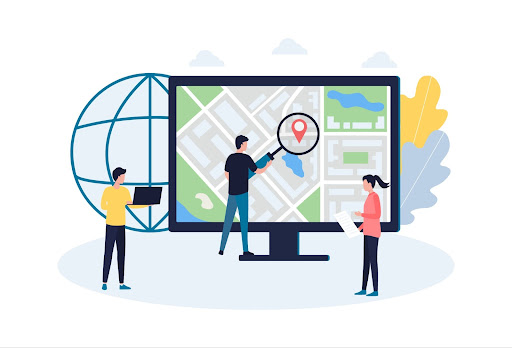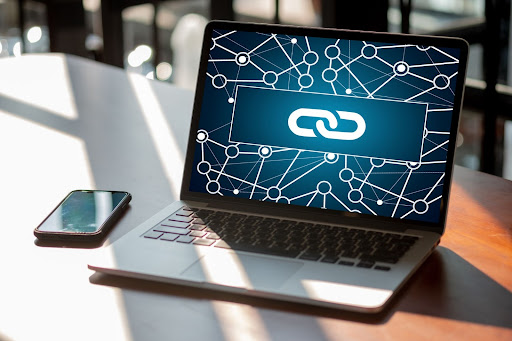Mastering local SEO has become crucial for businesses aiming to thrive in their communities. This is because so many people go to Google to find the businesses they’re looking for. It’s even more popular than asking a friend for a recommendation.
Whether you’re a brick-and-mortar store, a service-based company, or a local professional, understanding the ins and outs of local SEO is essential for attracting and engaging your target audience.
This comprehensive guide will walk you through the fundamental principles of local SEO in the context of digital marketing, equipping you with the knowledge and strategies needed to unlock local success and enhance your digital presence.
From optimizing your website and maximizing your Google My Business listing to creating locally targeted content and measuring your results, this guide covers everything you need to know to leverage local SEO and rise above the competition in your local market.
Let’s dive in and discover the power of local SEO in driving business growth and visibility in the digital realm.
Understanding Local SEO: What Is It?
Local SEO is optimizing a website to appear in search engine results for local searches related to a particular geographic location.
Local SEO helps local businesses increase their online visibility and attract nearby customers by making it easier for potential customers to find them in local search results.
For example, if a user searches for “coffee shop near me” or “best pizza in [city name],” local SEO strategies can help a business’s website appear higher in the search engine results pages (SERPs) for those searches. This helps companies to reach people actively searching for their products or services in their local area.
Businesses can also establish trust and credibility with local customers by optimizing their website and digital presence for local search. This is because local SEO focuses on providing accurate, up-to-date information about a business’s location, contact details, and business hours.
When this information is consistent across various online platforms and directories, customers are more likely to trust the business and choose to visit or make a purchase.
Overall, local SEO is crucial for local businesses because it helps them increase their online visibility and attract nearby customers searching for their products or services. It can increase website traffic, leads, and conversion rates, significantly impacting a business’s success.

Benefits of Local SEO in Digital Marketing
Local SEO provides several benefits for local businesses:
- Better Online Visibility: Local SEO activities, such as citation building and optimizing online listings, help improve a business’s visibility in local search results. By appearing in the top search results for relevant local queries, businesses can increase their online presence and attract more potential customers.
- Increased Website Traffic: Local SEO strategies drive targeted traffic to a business’s website by optimizing it for local keywords. Companies implementing local SEO are more likely to be found and visited when people search for specific products or services in their local area.
- Higher Conversion Rates: Local SEO targets customers actively searching for products or services in their local area. As a result, the conversion rates for local SEO leads tend to be higher than general search inquiries. When potential customers find a local business online, they are more likely to make a purchase or visit the physical location.
- Competitive Advantage: Implementing local SEO techniques helps local businesses stand out from their competitors in online search results. By optimizing their online presence with locally targeted keywords, businesses can appear above their competitors, increasing their chances of being chosen by potential customers.
- Build Trust and Credibility: Local customers often prefer to support businesses within their community. Local SEO ensures that accurate and consistent information about the business, such as contact details, business hours, and customer reviews, is readily available. This builds trust and credibility with potential customers, making them more likely to choose the business over competitors.
- Mobile Optimization: With the increasing use of smartphones, mobile optimization is vital for local businesses. Local SEO optimizes websites for mobile devices, ensuring a seamless user experience. This is crucial as mobile users are more likely to take immediate action, such as visiting a business or making a purchase.
Now that we’ve talked about local SEO and its awesome benefits, let’s look at the main components of local SEO: Google My Business, on-page optimization, backlinks, and local content.

Google My Business
Google My Business (GMB) is a free tool provided by Google for businesses to manage their online presence across Google, including Google Search and Google Maps. By creating and optimizing a GMB profile, businesses can ensure that their information is accurate and up to date, making it easier for potential customers to find and visit their business.
Here is an overview of how to set up and optimize a GMB profile:
- Claim or Verify Your Business: The first step is to claim or verify your business on Google. This involves providing accurate, up-to-date information about your business, including its name, address, phone number, and website.
- Update Your Business Information: Once your business is claimed or verified, the next step is to update your business information. Make sure to provide comprehensive and accurate information about your business, including business hours, products or services offered, and high-quality photos.
- Encourage Customer Reviews: Customer reviews are important to your GMB profile and can impact your search rankings. Encourage your customers to leave positive reviews and respond promptly to negative reviews.
- Optimize Your GMB Profile: To optimize your GMB profile, include relevant keywords in your business name, category, and description. Use high-quality images and videos to showcase your business and engage with your customers by responding to questions and reviews.
Here are some additional tips for maintaining your GMB profile:
- Provide Consistent Information: Ensure that your business information, such as your business name, address, and phone number (NAP), is consistent across all online platforms to build trust and credibility with customers and search engines.
- Monitor Your Profile Regularly: Keep an eye on your GMB profile, respond to customer reviews, or update your profile as needed. Regularly monitoring your profile is important to maintain accuracy and relevance.
- Use GMB Insights: GMB provides insights into how customers find and interact with your business. Use this information to optimize your profile and improve the overall performance of your business online.
On-Page Optimization
On-page optimization in local SEO refers to the process of optimizing the content and structure of a website’s individual pages to improve its visibility in local search results. By implementing on-page optimization techniques, businesses can enhance relevance and make it easier for search engines to understand the local intent behind their web pages.
Here is a step-by-step guide to on-page optimization for local SEO:
- Keyword Research: Begin by conducting keyword research to identify relevant local keywords. Focus on keywords that have local intent and are frequently used by people searching for products or services in your area.
- Optimize Page Titles: Include your target keywords in your website’s page titles. Make sure the titles accurately describe the content of each page and include the name of your business and location if relevant.
- Meta Descriptions: Write compelling meta descriptions that clearly describe what the page is about and include your target keywords. These descriptions appear in search engine results and should entice users to click on your website.
- URL Structure: Optimize your URLs by including relevant keywords. Keep them concise, descriptive, and easy to read.
- Header Tags: Use header tags (H1, H2, H3) to structure your content and make it easier for search engines to understand. Include your relevant target keywords in the headers and create a hierarchy of headers to organize the content.
- Content Optimization: Ensure your content is optimized for local SEO. Include relevant keywords naturally in the body of your content, but avoid keyword stuffing. Provide valuable and informative content that answers users’ questions and addresses their needs.
- Images and Alt Text: Optimize images by compressing them for faster loading times and adding descriptive alt text. Use alt text to include relevant keywords where appropriate.
- Internal Linking: Incorporate internal links within your content to guide users to related pages within your website. This helps search engines understand the structure and hierarchy of your website.
- NAP Information: Include your business’s name, address, and phone number on every page of your website, ideally in the footer or header. Consistency in this information across the website and other online platforms is crucial for local SEO.
- Schema Markup: Implement schema markup, such as Local Business schema, to provide search engines with structured data about your business, including hours, addresses, and phone numbers. This helps improve the relevancy and accuracy of your local listings.
Best practices for on-page optimization in local SEO include:
- Create unique, informative, and engaging content that adds value for users.
- Ensure fast page loading times by optimizing images and minimizing unnecessary scripts or plugins.
- Design your website to be mobile-friendly and responsive to provide a seamless user experience on all devices.
- Use local keywords naturally in your content, but avoid keyword stuffing.
- Regularly update and maintain your website’s content to ensure accuracy and freshness.
By following these steps and best practices, you can effectively optimize your website’s pages for local SEO, improve your search engine visibility, and attract more local customers.

Backlinks
Backlinks are incoming links from other websites to your website. They are an essential part of local SEO because they signal that your website is a valuable resource for users. High-quality backlinks from local and relevant sources can help improve your website’s visibility in local search results.
Backlinks are considered one of Google’s search algorithm’s most important ranking factors. They indicate to search engines that other websites recognize the content of your website as authoritative and trustworthy.
For local SEO, backlinks from other websites in the same geographical area are particularly relevant. Those links show you are a legitimate business within your community and signal local relevance to search engines.
There are several tactics you can use to build backlinks for local SEO:
- Create valuable content: High-quality content that answers users’ questions and provides useful information is more likely to attract backlinks from relevant and authoritative sources.
- Guest blogging: Reach out to other relevant websites and offer to write high-quality guest blog posts that link back to your website.
- Local directories: Submit your website to local business directories. Citation building is a popular technique to build local backlinks.
- Sponsorships/events: Sponsor local events or organizations, often including links to sponsors on their website.
- Local media: Pitch your business to local media outlets in your area. They might include your website as a resource in their articles and link back to your site.
Here are some best practices to keep in mind when building backlinks for local SEO:
- Focus on quality over quantity: Backlinks from relevant, authoritative websites are more valuable than a high number of low-quality backlinks from irrelevant websites.
- Use relevant anchor text: Anchor text should include relevant keywords and provide context for the link.
- Diversify your backlink profile: Avoid having all your backlinks come from a single website or type of website, such as directories. A diverse backlink profile will look more natural to search engines.
- Monitor your backlinks: Regularly check and monitor the quality of your backlinks to ensure they are not spammy or harmful.
Local Content
Local content marketing is the process of creating and distributing relevant and valuable content tailored specifically to your local target audience. It involves producing geographically targeted content to attract and engage local customers.
Local content marketing is important because it helps businesses build brand awareness, establish credibility, and attract local customers who are more likely to convert.
Here are different types of local content marketing and tips on creating successful local content:
- Local Blogs or Articles: Create blog posts or articles focusing on local topics, events, news, or stories. These can include guides, interviews with local business owners, success stories, or news updates.
- Local Guides or Directories: Develop comprehensive guides or directories highlighting local businesses, restaurants, attractions, or events in your area. These can help showcase the local community and position your business as a valuable resource.
- Local Case Studies: Share success stories of customers or clients from your local area. Highlight how your products or services have positively impacted their lives or businesses. This establishes trust and demonstrates the benefits of working with your business.
- Local Events or Webinars: Organize or participate in local events or webinars where you can share valuable industry insights or expertise specifically tailored to your local audience. This helps establish your business as a local authority and allows networking opportunities.
- Local Infographics or Visual Content: Create visually appealing content, such as infographics or videos, that presents local data, statistics, or information in an engaging and easily consumable format. This type of content is shareable and can generate social media buzz.
- Local Customer Testimonials or Reviews: Showcase positive reviews and testimonials from local customers to build credibility and trust within the local community. This can be done through dedicated website sections, social media posts, or even video testimonials.
By leveraging local content marketing, businesses can effectively engage their local audience, establish themselves as local authorities, and ultimately drive more local customers to their business.

Measuring the Success of Local SEO
It won’t be hard to tell when your local SEO efforts start paying off. You’ll notice your local rankings, organic traffic, GMB insights, online reviews, local citations, website engagement, and conversion metrics start to flourish.
It’s essential to set up regular reporting and utilize tools like Google Analytics, Google Search Console, and local SEO platforms to gather and monitor these metrics. Additionally, comparing these metrics over time and benchmarking against competitors can provide valuable insights into the effectiveness of your local SEO strategies.
Remember, local SEO is an ongoing process. Rankings and user behavior can fluctuate. Continuously reviewing and adapting your local SEO strategies based on the data collected will help ensure long-term success.
Local SEO in Digital Marketing With Revity Marketing
Are you struggling to optimize your local online presence? Don’t worry; we’re here to help! At Revity Marketing, we specialize in local SEO in digital marketing that can help boost your online visibility, attract more local customers, and grow your business.
Contact Revity today to learn more about how we can help you unlock local success with our digital marketing services. Don’t miss out on the power of local SEO. Partner with us and take your business to the next level.





